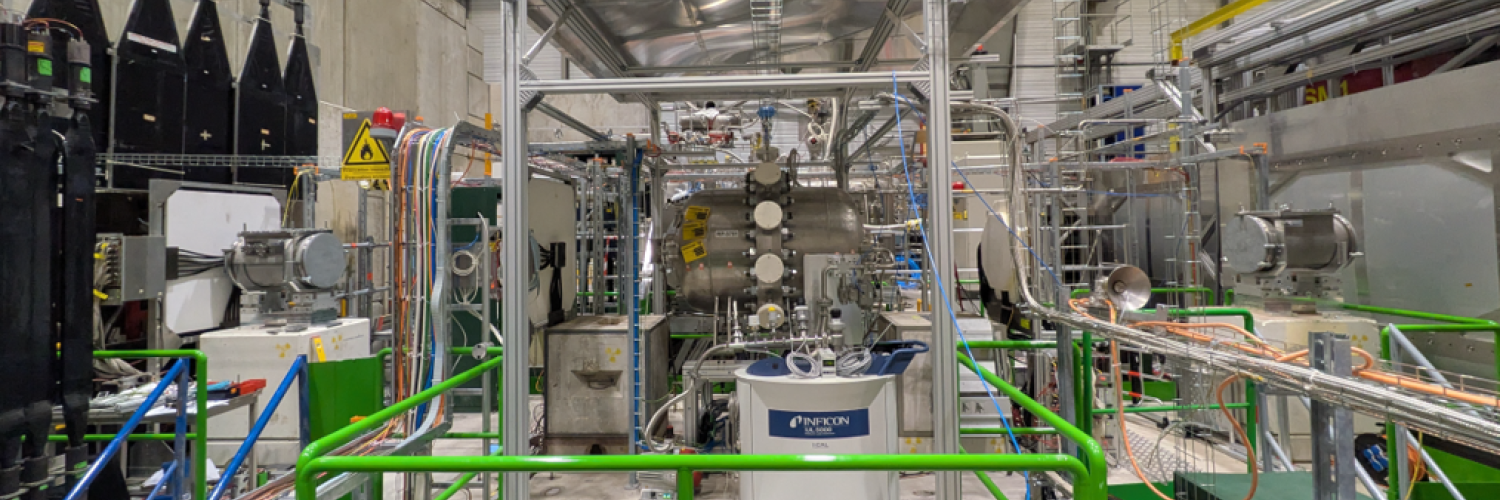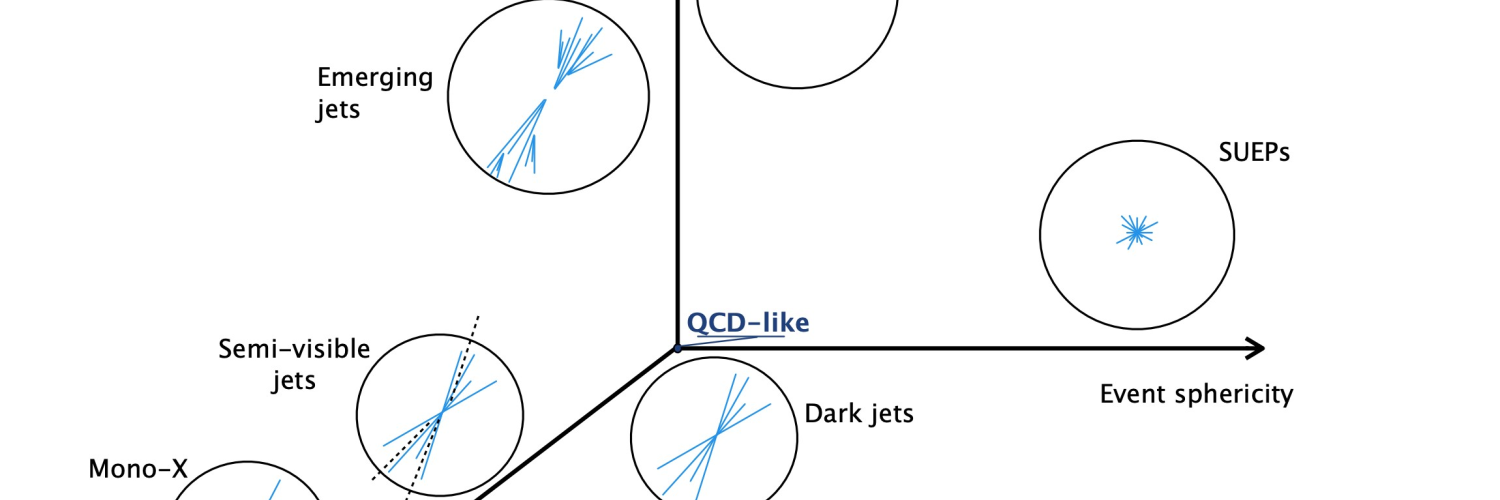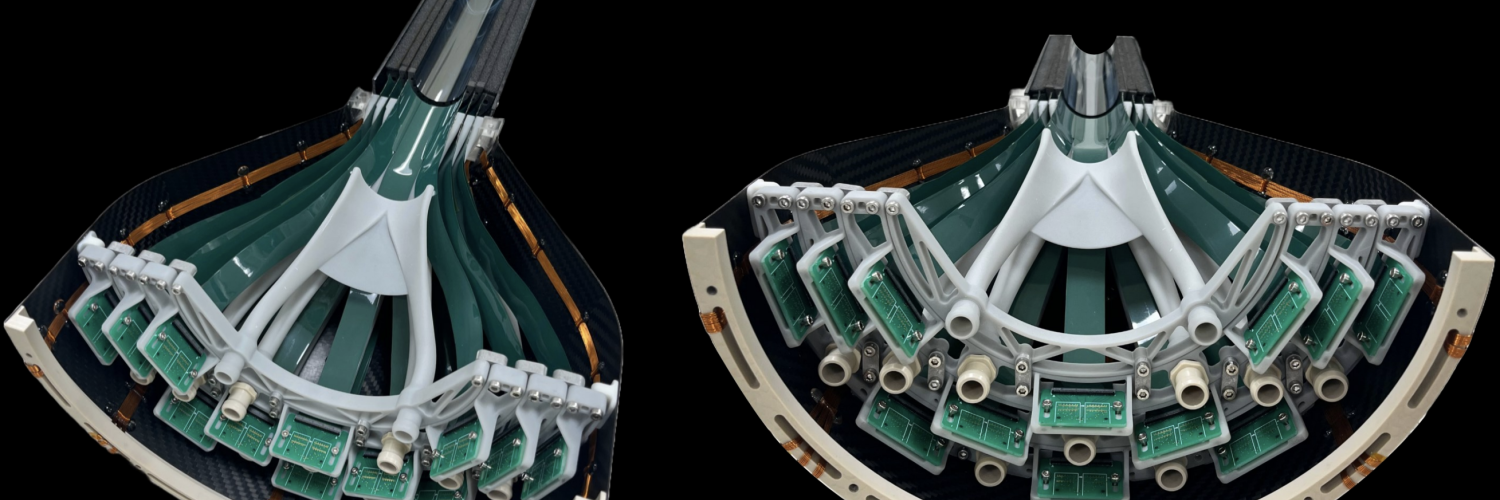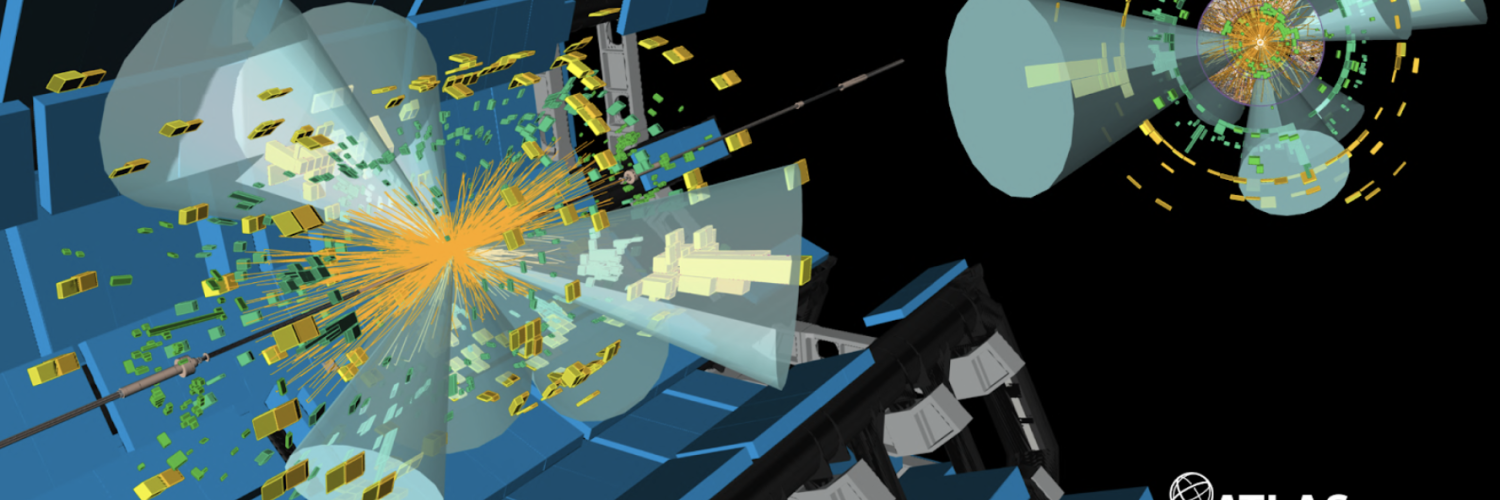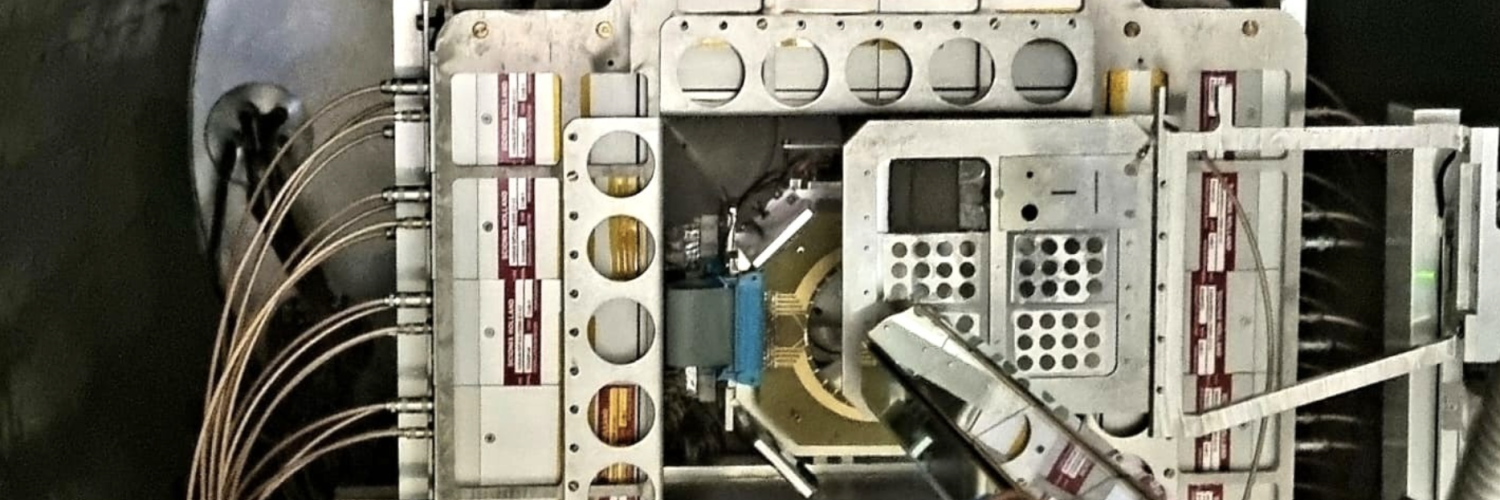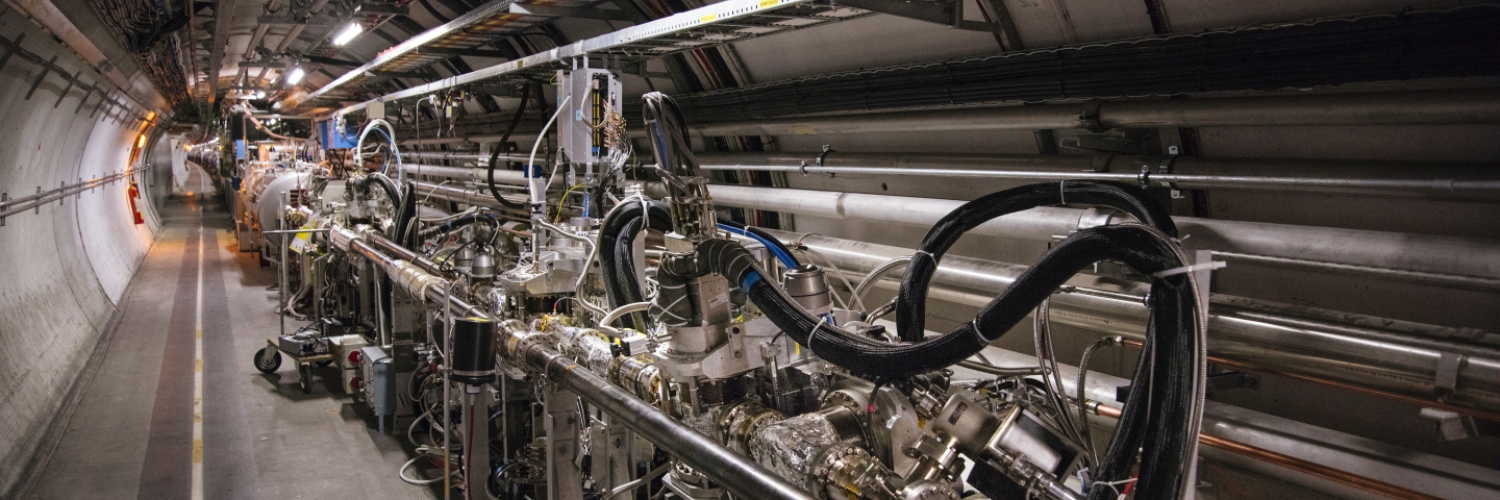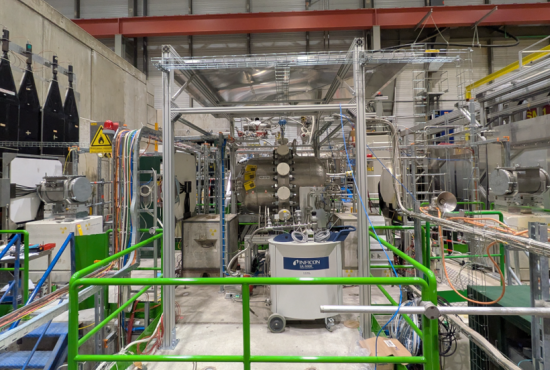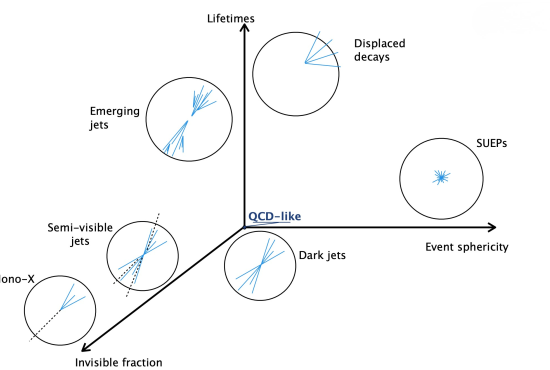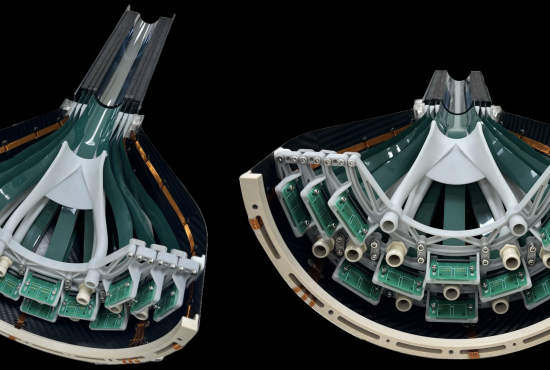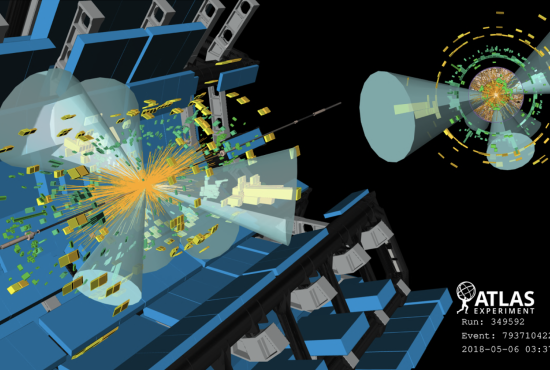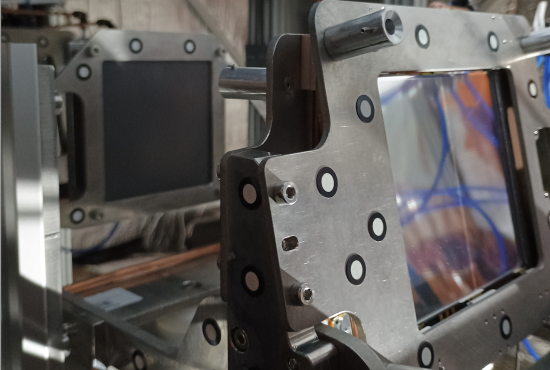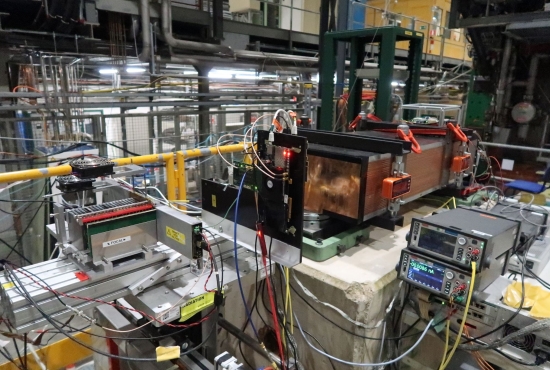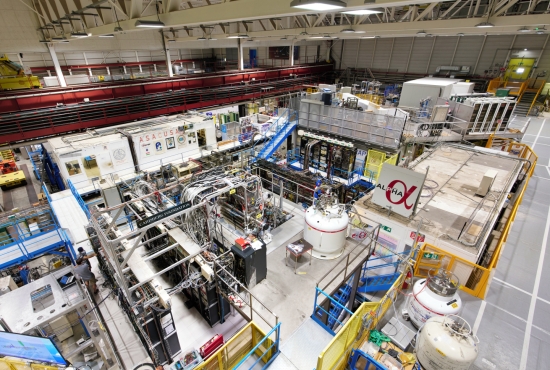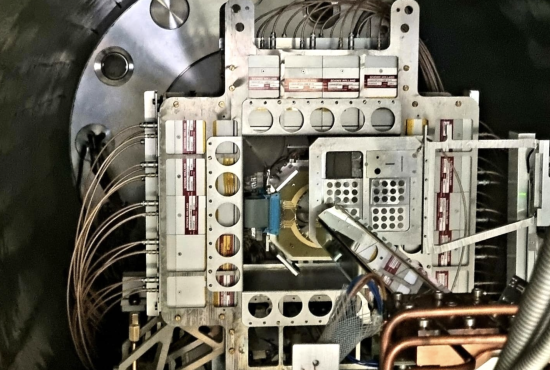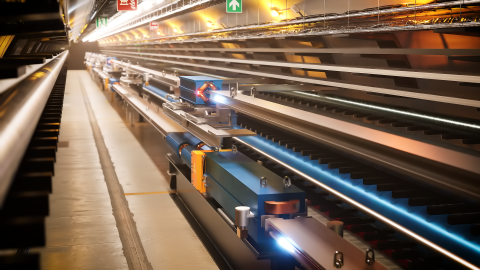The symposium highlighted quantum simulation’s growing importance for high-energy physics and CERN’s leadership in quantum technology for fundamental research.
A word from the EP Department Head - December 2025
Dear colleagues in EP,
I hope this message finds you all well. You have opened the last EP Newsletter of this year. At the same time, this is the last newsletter which appears under the auspices of the present EP management...
READ MORE
Interviews & Features
AMBER — En route to measure the proton radius
AMBER has just finished a successful 2025 commissioning run at CERN, setting the stage for a high-precision 2026 muon–proton scattering measurement aimed at cracking the proton-radius puzzle.
Read MOREDark Showers at the LHC: from benchmarks to Run-3 readiness
Methods that moved the needle – Highlights of novel machine-learning approaches discussed and their relevance for current analyses.
Read MOREFrom vertex to calorimeter: R&D challenges in detector mechanics for future colliders (WP4)
EP R&D WP4 is developing innovative mechanical, thermal, and automation solutions to meet the unprecedented demands of next-generation collider detectors.
Read MORETriple Higgs Frontiers: Mapping the Higgs self-couplings at the 2025 HHH workshop
The first experimental searches for triple-Higgs production and the 2025 HHH workshop mark a turning point in efforts to probe the Higgs self-couplings and the structure of the Higgs potential at the LHC.
Read MOREHighlights from the 2nd NGT Technical Workshop
The 2nd NGT Technical Workshop, held at CERN in November 2025, gathered over 100 participants to review progress across computing, machine learning, trigger systems, and training activities.
Read MOREResults from the experiments
MUonE: A new path to hadronic vacuum polarization and the running of α
MUonE is advancing toward a full experimental proposal at CERN’s North Area, using precise muon–electron scattering to pin down hadronic vacuum polarization.
Read MOREFoCal Moves Toward Construction After a Successful Beam Test
Recent beam tests show that the ALICE Forward Calorimeter (FoCal) is ready for construction and poised to explore gluon dynamics at the smallest momentum fractions ever reached at the LHC.
Read MORESympathetic Cooling Opens a New Era for Antihydrogen at CERN
A new positron-cooling technique has allowed the ALPHA experiment to produce and trap antihydrogen at unprecedented rates, marking a major step forward in the study of atomic antimatter.
Read MOREWhite Rabbit: Revolution of Timing Distribution for HL-LHC experiments
From laboratory validation to real-life implementation, the next-generation timing distribution system for experiments is reaching readiness for the high-luminosity era.
Read MORETransfer-induced fission at the ISOLDE Solenoidal Spectrometer
A new experimental technique at ISOLDE is opening a window onto nuclear fission in neutron-rich nuclei, helping to unravel how gold, uranium, and the heaviest elements in the Universe are formed.
Read MORESpecial Features
Frank Wilczek in Conversation: The Beauty of Fundamental Physics

A Nobel laureate reflects on beauty, discovery, and the enduring mysteries that keep physics—and curiosity—alive.
Read MOREEuropean Strategy update reaches key milestone
In December 2025, the CERN Council received the recommendations for the update of the European Strategy for Particle Physics, identifying the FCC-ee as the preferred option, subject to Council decisions.
Read more
